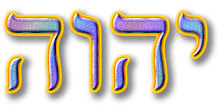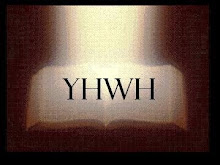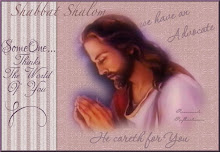5 Nisan/Aviv Second Day Yom Shaynee
"Guard your heart so that you receive wisdom, instruction and understanding with thanksgiving to glorify your God in Heaven", says Adonai
Psalm 51:17 The sacrifices of Elohim are a broken spirit: a broken and a contrite heart, O Elohim, you will not despise.
When we offer ourselves broken and contrite, it is acceptable to Elohim and helps us draw near. To sin is to walk away from Him and His presence. Adam and Eve hid from ADONAI when they sinned. Sin stops us from dwelling near him. The offerings help right our wrong and are the fruit of our repentance.
True love is sacrifice. The opposite of sacrifice is selfishness. Elohim has loved us since the beginning and even gave His Son for us that we would not be destroyed. Yeshua also loved us and gave His own life for us. What have we done in return? What great thing have we given to him?
Torah (Instruction from God) teaches us how to love Elohim. Yeshua says if you love Him keep His Commandments. But what can we really give Elohim? He created it all.
The only thing we can give Him is our choices. It's the only thing we own. We can sacrifice our self serving ways and stop sinning, study His Torah to find out how to love Him, and thank Him for everything. Is it really that big of a list?
Is keeping His Sabbaths such a burden when He gave His life for us? Nobody wants to be in a one sided relationship. This is what was so despicable about the golden calf in Exodus chapter 32. After all ADONAI did for Israel they gave the glory to a piece of gold they made.
Let's look at ways we can show our love for Elohim and our Mashiach that will help us draw closer to them.
1John 5:3 For this is the love of Elohim, that we keep His commandments: and His commandments are not grievous.
In Haftarah Vayikra Yeshayahu (Isaiah) 43:22 , we see ADONAI saying that the children of Yisra'el are weary of Him, they have not honored Him with offerings and incense. Yet He says it is not His joy to receive all their sin sacrifices, they have burdened Him with their sins and wearied Him with their lawlessness. Many people today think the Torah and Elohim's law is a bother and a burden they can happily do without. But it is only a burden if they break it. It was put there for them to help them and yet they have made it grevious, this shows they do not love Elohim.
When we sin it creates separation between Man and Elohim. Messiah came to be our intercessor. When we sin like the golden calf we walk away from Elohim and push Him outside the camp. Moshe, a peacemaker, brought the Israelites back together under the sacrifices of the Priesthood,under the Mosaic Covenant just as our Messiah cleans us up and helps to bring us near through (Korban or offerings).
The very fact Elohim made a system for us to be restored shows His great love and mercy and His desire to dwell with us even though we have walked away from Him. Elohim is faithful to us, it is us who are unfaithful in this relationship. When we walk away from Elohim by sinning He doesn't chase after us, but He does create a path by which we can return to Him. In this weeks parasha we see the offerings were a way He helped man atone for sin and draw close to Him. And thru His son, Yeshua Who was the better sacrificial offering, our sin was put upon Him.
"YESHUA — OUR KORBAN"
The oldest name known for this third book of the Torah is “The Law of the Priests.” But since the service in the Mishkan was given to the tribe of Levi, it was named in the Greek Septuagint translation, “Leviticus.” In the Jewish tradition of naming a book by its first word, this book is also known as “Vayikra,” “He Called.”
Vayikra deals with two fundamental concepts, the offerings to ADONAI symbolized by an animal sacrifice, and holiness, the purity of life, action and thought – “You shall be holy for I, your God, am Holy.”
These offerings, or sacrifices, are divided into two categories, individual offerings and congregational offerings. These sacrifices were given as mere shadows and spoke of the redemptive work of the prophesied Messiah for every human being individually and for the unique nation of Israel as one entity. Yeshua Messiah indeed came to offer Himself as a better sacrifice which replaced all others sacrifices under the Mosaic Covenant.
A sacrifice, in this Mosaic context, can be a “burnt-offering” expressing the surrendering of oneself to God’s will; a “peace-offering” expressing one’s gratitude for God’s bounty and mercy; or a “sin-offering” expressing sorrow of sinning against God and the firm resolve to be reconciled with Him.
The Parashah begins with these words, Vayikra 1:1-2: “ADONAI called to Moshe, and spoke to him from the Tent of Meeting, saying, ‘Speak to the people of Yisrael, and say to them, “When a man among you brings an offering to ADONAI, you shall bring it from animals, from the cattle or from the flock shall you bring your offering.”
From these opening words the sages left for us insightful teachings. “An offering” is the Hebrew word Korban. The meaning of the root of this Hebrew word is "coming near," because an offering is the means to bring ourselves closer to God and to elevate ourselves.
Ancient idolaters believed that animal-offerings were needed to appease the anger of a judgmental, bloodthirsty god. This is totally foreign to Jewish belief. The Torah teaches that offerings are a means to draw closer to ADONAI — the Merciful God. Thus, the verse begins by speaking of “an offering to ADONAI,” but it concludes with “your offering,” omitting mention of Hashem. Homiletically, the verse teaches: if your offering to God comes from yourself — representing your sincere effort to draw closer to Him — then your offering has the exalted status of an offering to ADONAI. But if you merely go through the motion of performing the physical acts of the service just as a religious act, then, unfortunately, it remains merely "your" offering.
Even though the animal offerings do not apply to us today the principle of bringing an offering to God — our prayers, our worship, our time, our finances — remains as a teaching in our walk with Adonai and in our quest for holiness. The Brit Chadashah(New Testament) gives us further insight into these sacrifices for we read in Hebrews 10:1-10: “For the Torah, since it has only a shadow of the good things to come and not the actual things, can never by the same yearly sacrifices, which they offer continually, make perfect those drawing near. Otherwise, would these not have stopped being offered, because the worshipers, having experienced purification even once, would no longer have had consciousness of sin? But by those sacrifices there is a remembrance and a reminder of sins year after year. For it is impossible for the bulls and goats to take away sins. Therefore, when He (Yeshua Messiah) comes into the world, He says, “Sacrifice and offering You did not desire but a body You prepared for Me; Burnt offering and sin offering You have not desired. Then I said, `Look, here I am, I have come—it is written about Me in the scroll.` I desire to do Your will, O God.” He takes away the first system in order to establish the second. And it is by this that we will have been set apart through the korban (offering) of Yeshua HaMashiach, once and for all."
Yeshua's sacrifice fulfilled and replaced all other ones under the Mosaic covenant. Not only His sacrifice is all sufficient to forgive sin, but it is the only sacrifice that can remove the guilt of sin once and for all. With the advent of Mashiach the Mosaic system of sacrifice was over, Yeshua's shed blood substituted that of bulls and goats. Therefore, God’s requirement for forgiveness of sin remains and His commandments stand. A sacrifice must be made for the forgiveness of sin, except that He provided the sacrifice. The only thing that remains for us to do is to come to Him with a sincere confession of sins and a repentant heart.
But as we approach Passover we must ask ourselves, are our hearts ready for Passover? From Yeshua's sacrifice on that Roman execution cross we learn that if we believe in Him our lives are eternally secure in His hands, but our hearts may have been contaminated from the world around us. The Brit Chadashah teaches that even as believers we sin, but we must strive for holiness and, therefore, confess that sin, because nothing contaminated could come in the present of a Holy God. Passover is a beautiful reminder of not only what Yeshua did for us but also the need for searching and confessing that sin.
“And when the hour had come He (Yeshua) reclined at the table and His emissaries were with Him. And He said to them, “With great longing I have desired to eat this Pesach with you before I suffer. For I say to you that I may by no means eat it until it is fulfilled in the Malchut Hashem.” And having taken the Cup of Redemption, having made the bracha, He said, “Take this and share it among yourselves, for I say to you that from now on by no means shall I drink of the fruit of the vine until the Kingdom of God comes.” And having taken the Afikoman and having made the b'rakhah He broke the matzah and gave it to them, saying, “This is My body being given for you; this do in remembrance of Me.” And He took the cup similarly after they ate, saying, “This cup is the new covenant in My blood, being shed for you” - Luke 22:14-20.
One thing Yeshua asks us to do, that is, to observe the Passover. Yeshua said, 'Do this in remembrance of Me' and that “this” means partake of the elements of Passover. He said, 'Until I come observe the Passover in remembrance of Me,' because after He comes He will have fulfilled Rosh Hashanah, Yom Kippur and Sukkot, then we will observe those in remembrance of Him. But until He comes again what we will do in remembrance of Him is observe Passover, or the Lord's last Seder. Because that is what He had fulfilled for us, as the sacrificial Lamb of God. Therefore, Yeshua asks us to proclaim His death through the Passover observance.
But, in order to prepare for the observance of Passover we have to search for “chometz,” for leaven in our hearts and to get it out of our lives. Leaven in Scripture is always symbolic of sin; sin that needs to be searched for and eliminated from our hearts. We have our hearts clean but maybe we overlook the little crumbs in dark corners. Why is sin associated with leaven? Because just as a little leaven leavens the whole lump of dough, so too a little sin can spread and ruin our lives, our fellowship with Him and with each other.
That was the case in Corinth, so Rav Shaul (apostle Paul) says in the first letter to the Corinthians chapter 5, verse 7: “Clean out the old leaven, that you may be a new lump, just as you are in fact unleavened [in God's eyes]. For Messiah our Passover [Lamb] also has been sacrificed.“ What he is saying to us is: search for chometz, clean out the old leaven, then he continues in verse 8: ”Let us therefore celebrate the feast not with old leaven, nor with the leaven of malice and wickedness, but with the unleavened bread [the matzah] of sincerity and truth.“
Let's search for chometz in our lives, let's clean our hearts and be holy for He is Holy, and may this Passover feast be celebrated with a true Messianic spirit and joy.
Subscribe to:
Post Comments (Atom)











No comments:
Post a Comment